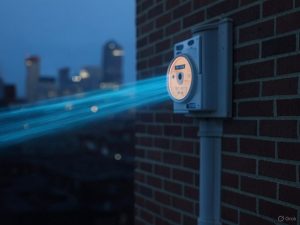In a small Ohio city, a group of residents is taking a stand against what they see as an overreach by local government. According to a recent article from the Akron Beacon Journal, a lawsuit has been filed in Cuyahoga Falls challenging the city’s mandate to install new electric and water smart meters in homes. This legal battle highlights growing concerns about privacy, health, and personal autonomy in the face of advancing technology. Let’s dive into what’s happening and why it matters.
The Smart Meter Mandate
Cuyahoga Falls, like many cities across the U.S., has been upgrading its utility infrastructure. The city’s plan involves replacing traditional analog meters with smart meters—devices that use wireless technology to transmit real-time data on water and electricity usage. Proponents argue smart meters improve efficiency, help detect leaks, and support sustainability by giving utilities better insights into consumption patterns. For city officials, it’s a step toward modernizing the grid and preparing for a tech-driven future.
But not everyone is on board. The mandate, which requires all residents to adopt these new meters, has sparked backlash from a group of locals who say they weren’t given a choice. According to the Beacon Journal, the plaintiffs in the lawsuit are pushing for the right to opt out, citing concerns about privacy, potential health risks from electromagnetic radiation, and the lack of transparency in the rollout process. For them, it’s not just about meters—it’s about who gets to decide what’s installed in their homes.
The Residents’ Case
The lawsuit argues that the mandatory installation infringes on personal rights. Smart meters collect detailed data, potentially revealing when residents are home, what appliances they’re using, and even their daily routines. Critics worry this information could be misused if it falls into the wrong hands, raising valid questions about data security in an era of frequent cyberattacks.
Health concerns are another sticking point. Some residents point to studies suggesting that the radiofrequency (RF) emissions from smart meters could pose risks, though scientific consensus on this remains debated. The plaintiffs aren’t necessarily saying the meters are dangerous—they’re asking for the freedom to err on the side of caution if they’re uncomfortable.
Perhaps most crucially, the lawsuit reflects frustration with the mandate’s one-size-fits-all approach. Residents feel their voices weren’t heard during the decision-making process, and the lack of an opt-out option has left them feeling powerless. As one plaintiff put it in the article, they’re not against progress—they just want a say in how it’s implemented.

The City’s Perspective
City officials, on the other hand, defend the mandate as a necessary step for the greater good. Smart meters, they argue, benefit the entire community by reducing costs, improving utility management, and supporting environmental goals. The Beacon Journal notes that Cuyahoga Falls is using federal funds, possibly tied to COVID relief, to cover part of the installation costs—a detail that’s raised eyebrows among critics who question the allocation of those dollars.
The city also emphasizes that smart meters are safe, citing regulatory approvals and studies that find no significant health risks from their use. From their perspective, the mandate ensures fairness: everyone shares the costs and benefits of a modernized system, without exceptions that could complicate implementation.
Why This Matters Beyond Cuyahoga Falls
This lawsuit isn’t just a local skirmish—it’s part of a broader conversation about technology, trust, and individual rights. Smart meters are being rolled out nationwide, often with similar resistance. Communities from California to Maine have seen pushback, with residents raising the same concerns about privacy, health, and coercion. The Cuyahoga Falls case could set a precedent, influencing how other cities balance innovation with personal choice.
At its core, this story is about trust. Residents want to know their government is listening, not steamrolling them with mandates. Meanwhile, officials face the challenge of advancing public infrastructure while addressing skepticism fueled by past overreaches or data scandals. It’s a tricky line to walk, especially when technology moves faster than public consensus.
What’s Next?
The lawsuit is still in its early stages, and it’s unclear how the court will rule. Will Cuyahoga Falls be forced to offer an opt-out, or will the mandate stand as a model for other cities? Either way, the case is a reminder that progress doesn’t happen in a vacuum—it requires dialogue, transparency, and respect for differing views.
For now, the residents of Cuyahoga Falls are standing their ground, asking for something simple yet profound: the right to choose. As smart technology becomes a bigger part of our lives, their fight serves as a wake-up call. Innovation can be a force for good, but only if it’s built on trust and mutual respect.
What do you think about the smart meter debate? Should residents have the right to opt out, or is a universal mandate the best way to modernize? Let’s keep the conversation going in the comments below.

Source: Akron Beacon Journal, “Residents sue Cuyahoga Falls over new meter mandate,” April 12, 2025.






